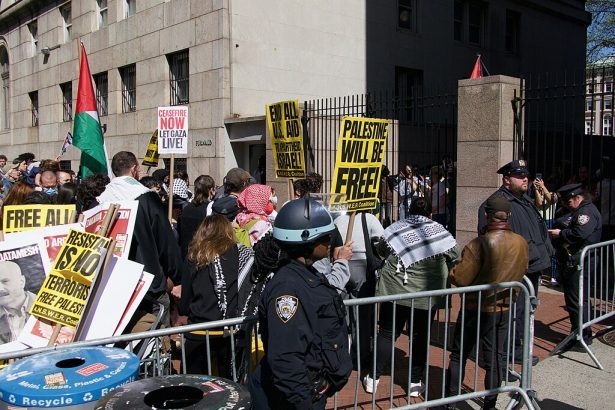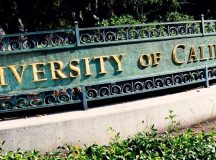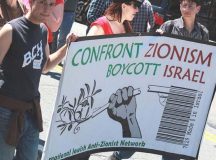Hedda Harari-Spencer is a Senior Lecturer in Hebrew at Tufts University.
On 17 May the University of Pennsylvania held its 2024 commencement ceremonies. One of the speakers, a graduating PhD in Africana Studies and History, concluded his talk by asking the audience to hold Israel accountable for its part in the ‘interconnected white supremacist imperial and hyper-militarized violence waged on the people of Gaza.’ Never mind that the graduate, whose research covers Puerto Rico, most likely never conducted primary-source research on the Israeli-Palestinian/Arab conflict nor visited the Southern Levant and, therefore, is no expert. What is more disturbing was the Associate Dean for Graduate Studies’ immediate response: ‘It gives us so much pleasure to send scholars like this into the world.’ Unfortunately, speeches and responses like this one at Penn have become typical in recent graduation seasons and have continued into the new school year.
Academia, students’ groups, the press, writers’ organisations, museums, and others have divisively stepped into the current Israel-Hamas War, started with the Hamas 7 October 2023 attack. Within days of this twenty-first-century pogrom, prior to any Israel Defense Forces (IDF) attempt to retrieve its country’s citizens kidnapped by an internationally-declared terrorist group, academic–organisation statements appeared, charging Israel with attacking Palestinians, an obvious attempt to deflect responsibility from the perpetrators. Since the terror group’s origins in the late 1980s, Hamas has adopted a maximalist position and therefore aims to destroy any two-state solution and any compromise. Currently, Hamas’s strategy is to hide among and below the civilian population and cause their deaths in order to destroy Israel’s reputation, to the point where the international community will force Israel to stop fighting, thereby allowing Hamas and its supporters to declare ‘victory’ and continue ‘resistance.’ These academic-organisation statements form another means of that strategy, whether explicitly or tacitly.
In recent decades American universities have institutionalised an anti-Israel single narrative, largely based on falsehoods. The narrative goes like this: Israel, and only Israel, is to blame for all violence in the Middle East; it conducts apartheid against the Palestinians and causes a genocide in Gaza; resistance is necessary against this unnatural settler-colonial oppressor, who stole the land, and soon the Palestinians will be free, from the River to the Sea. We can see this shift in the increasing hiring of academics who hold a strong anti-Israel agenda, which influences academic discourse, thereby shaping generations of students. The anti-Israel protests and encampments across American universities since 7 October grew directly from this institutional legitimisation, as faculty across the country promoted, supported, and, in some cases, participated in them.
This essay will analyse several academic-organisation statements released after 7 October, examining how they have framed the Israeli-Palestinian/Arab conflict and current war in order to discredit Israel. No matter which academic organisation pens them, I argue that these statements follow a script, using the same phrases, concepts, examples, and sources. They engage in ‘cherry-picking,’ presenting incomplete accounts of events; use unreliable sources; ‘concept-stretch,’ transferring common concepts into other, unrelated contexts; deploy specific keywords or labels; and normalise dictatorial regimes. These statements spread disinformation and thereby violate academic integrity.
Anti-Israel academics position themselves as advocates of social justice endowed with a moral superiority. Paradoxically, their statements implicitly support, minimise, or ignore the actions of tyrannical regimes and terrorist organisations, blaming all suffering on Israel. We have entered an upside-down, Orwellian, Nineteen Eighty-Four world. The Ministry of Truth is in charge of the university.
The Statements
The Middle East Section of the American Anthropological Association (AAA) has released four statements concerning events following 7 October (but not the events of 7 October itself, as we shall see). I will focus on ‘The Destruction of Education in Gaza‘ (January 2024) and ‘AAA Sections Statement on Gaza, Palestine‘ (June 2024) that condemn Israel for destroying the educational system in Gaza, killing students, teachers, and academics, and decimating universities’ infrastructure. (The other two differ little.) They declare Israel guilty of genocide and call for a worldwide academic boycott of Israel, which is nothing new for this group.
These statements use propaganda techniques to distort reality in their attempt to entice those who are relatively ignorant (i.e., students and faculty) about the long Israeli-Palestinian/Arab conflict to support the anti-Israel single narrative. For those familiar with the history of the conflict, alongside the over-1,000 years of discrimination against Jews in the Muslim world, it’s quite easy to see through this agitprop.
Cherry-picking
Cherry-picking – the ‘careful’ curation of facts to include (and omit) in order to forward a purposefully-distortive, predetermined political narrative – is the first technique employed by the authors. Foremost, both statements fail to mention Hamas, the 7 October attack, or the hostages taken into Gaza. They do not mention the arsenal of weapons and military professionalism that Hamas has acquired since 2007 to use against the ‘Zionist enemy.’ They do not mention the state-of-the-art tunnel system that Hamas built underground with connections and outlets to nearly every building in Gaza, depriving the people of Gaza of resources. They do not mention how Hamas uses ‘public’ institutions in Gaza such as hospitals, schools, and universities to hide themselves, weapons, and Israeli hostages. They do not mention that Hamas fighters, rarely in uniform, mix with the Gazan population, turning all of Gaza into a one large battlefield, with a goal to cause a large number of civilian casualties in our social-media world.
Mentioning those facts would have provided a completely different narrative to that presented in the statements. Among others, the anti-Israel statements of the Middle East Studies Association, American Sociological Association, and, most disappointingly, given the amount of sexual violence against Israeli women on 7 October, the National Women’s Studies Association all purposely omit Hamas.
Anti-Israeli activists commonly use this strategy, of directing audiences away from Hamas’s actions towards Israel’s retaliations. Ahmed Fouad Alkhatib, a Gazan who lives in the U.S. and currently works as a political analyst, has discussed this strategy on several occasions. Unlike many of those sitting in encampments and marching in parades, Alkhatib is pro-Palestinian, not anti-Israel. During a prior Israel-Hamas war, he publicly criticised Hamas to a reporter. Once the journalist left, another ‘pro-Palestinian’ activist informed him ‘that I should never talk about the rockets and instead immediately “pivot” to the suffering of Gazans and Israel’s role in what is happening.’ Others ‘explicitly told me not to “air our people’s dirty laundry” and that it would be better to maintain a “veneer of unity” and keep the focus on Israel.’ He sees those views as typical of ‘Hamas apologists who disguise themselves as pro-Palestine activists.’ His X (Twitter) postings detail numerous accounts of harassment, as he continues to criticise the actions of Hamas for causing Gazan misery.
This approach of omitting Hamas and/or the 7 October attack also aligns with how the Arab media presents the conflict. Disturbed by how mainstream Arabic-language platforms and social media framed 7 October as either a just another clash between Israel and Palestinians or, worse, as an Israeli attack on Gaza ‘out of the blue,’ Egyptian pro-democracy activist Dalia Ziada revealed the facts to audiences. She soon had to flee Egypt.
Reliance on Unreliable Sources
Second, these sorts of statements use unreliable sources. The two AAA statements are littered with them. As Hamas has controlled Gaza for nearly twenty years in a totalitarian-like regime, any journalist working in Gaza reports through the good wishes of Hamas. If a journalist, particularly a local Gazan, reports information or provides analysis unfavorable to Hamas, Hamas will seek retribution on the journalist. Many Western news agencies therefore self-censor themselves on Hamas actions in Gaza to protect their local sources.
The statements’ foremost source, the Euro-Med Human Rights Monitor, describes itself as ‘a youth-led independent, nonprofit organization.’ Why would a youth-led organisation report from a war zone? And why should readers trust it? NGO Monitor lists the Euro-Med Human Rights Monitor as a European front for Hamas. Al-Jazeera, based in Qatar and partly funded by the Qatari dictatorship allied to Hamas, typically reflects Qatar’s foreign policy interests in its coverage, framing the war in Gaza as ‘Israel’s war on Gaza‘ without referring to Hamas’s attack on Israel. Additionally, Israel has identified several Al-Jazeera reporters (and other ‘journalists‘) as Hamas operatives. The International Middle East Media Center claims to ‘provide independent media coverage of Israel-Palestine.’ Its article that the AAA authors referenced, on the destruction of universities in Gaza, does not mention Hamas (again!) nor that the terrorist group uses university grounds for their actions. Others have better described the problematic nature of United Nations Relief and Works Agency for Palestine Refugees in the Near East (UNRWA), the UN agency dedicated for 75 years to supporting Palestinian ‘refugees’ from the 1948 War. In order to continuing operating in Gaza, the organisation has worked closely with Hamas.
Concept-Stretching
Thirdly, these statements concept-stretch, taking familiar concepts from one context and ‘illegitimately’ stretching them into a wholly different context. Thinking of their audience of American academics and students, for example the authors write that Israel targets ‘public intellectuals’ and threatens ‘academic freedom’ in Gaza. However, while the role of a public intellectual is to critique society (and government), offering suggestions for improvement, few in Gaza can openly critique Hamas, intolerant of dissent. Public intellectuals and academic freedom do not exist in Gaza, the West Bank, or any dictatorships. The most egregious instance might be how ‘queer people in Palestine struggle’ because of the Israeli onslaught. Yes, queers struggle in Gaza, the West Bank, and the nearly all of the Middle East, as Islam and Arab culture do not accept homosexuality. Israel has long been the only haven for LGTBQ+ people in the Middle East, and when pro-Israel supporters mention this fact, they are accused of ‘pinkwashing.’
The AAA statements make a false equivalence between educational institutions of democracies and dictatorships: ‘Education is at the heart of society … precious institutions like schools, universities, libraries, museums.’ In democratic societies, public schools and universities foster learning and critical thinking, encouraging students to expand their knowledge. In contrast, schools in Gaza and other Arab dictatorships propagate anti-Israel rhetoric, glorify violence against Israel, and promote antisemitism. This educational framework does not cultivate intellectual growth but rather nurtures hatred and intolerance. Schools teach children from a young age that Israel is not a country, but a ‘Zionist’ entity that needs to be destroyed: ‘we learn that stabbing and running over Jews bring honor to the Palestinians.’ Additionally, children learn the importance of being a shahid (martyr) to the Palestinian cause, which conforms to Hamas’s strategy in this current war. Even ‘neutral’ subjects like math and science embed these messages. If the authors believe that education is at the heart of society, then why do they not call out Hamas for using schools and universities for military purposes?
Demonising Labelling
The vast majority of these statements use certain keywords incessantly when referring to Israel, labelling the Jewish state with concepts that demonise by associating the country with evils: ‘ethnic cleansing’, ‘racism’, ‘colonialism’, ‘settler colonialism’, ‘genocide’, and ‘apartheid’. Use of these labels removes any responsibility for the Gazan people’s current plight from Hamas. Others have rightly dismissed these claims and misuse of such loaded terms, providing a deeper and more nuanced analysis of Israel’s unique position. As historian Timothy Snyder notes in On Tyranny, ‘Words written in one situation make sense only in that context. The very act of removing them from their historical moment and dropping them in another is an act of falsification.’ The Soviet Union first directed these terms towards Israel in the 1960s and 1970s in its ‘anti-Zionist’ disinformation campaign, all to cover the regime’s antisemitic actions against its own population. Izabella Tabarovsky, a scholar of Soviet antisemitism, writes that they ‘succeeded at emptying Zionism of its meaning as a national liberation movement of the Jewish people and associating it instead with racism, fascism, Nazism, genocide, imperialism, colonialism, militarism and apartheid.’ The Soviet Union soon exported this phrasing to its anti-Israel Arab allies, who continue to use it sixty years later. It has now seeped into the Western academic discourse.
By repeatedly labeling Israel with the same disparaging concepts, whether in course titles and contents, posters, programing, teach-ins, and these statements, these notions gradually transform words from another context into convincing, unchallengeable truths. Israel appears as a vicious, evil regime, killing innocents for its own bloodlust (itself a common antisemitic trope). It reeks of how Orwell’s Big Brother employed the strategy of verbal manipulation, eradicating words to ‘narrow the range of thought.’ Rather than allowing a diverse and nuanced language to articulate reality or ideas, an enthusiastic employee of the Ministry of Truth continues: ‘every concept that can ever be needed will be expressed by exactly one word.’
Declining Academic Integrity
At stake is the broader problem of academic integrity. Cherry-picking facts only to ‘prove’ one narrative, omitting facts and showing contempt for evidence that discount that narrative, disregarding the principle of cause-and-effect, and manipulating language and terminology, thereby employing Orwellian Newspeak, all forward a political agenda, in this case one led by a terrorist organisation that has murdered Israelis and Palestinians for over thirty years. The anti-Israel single narrative promoted by these statements is ultimately based upon narrative lies of dictatorships and terrorists.
So why are these statements tolerated? Is it the reluctance of scholars to call out ‘experts’ from outside their own field, even when they suspect the scholarship is questionable? Is it a fear of appearing to stand against ‘diversity, equity, and inclusion’? Or a general reluctance to call out biased scholarship from a fear of being charged with ‘Islamophobia‘? Whatever the reason, some administrators, by collaborating with this trend, sacrifice our institutions in order to maintain their personal reputations with the vocal crowds on campuses, compromising the quality of research, teaching, and academic discourse.
We are witnessing an ongoing failure of universities to stand up for their values: to seek and protect the truth. Anti-Israel academics, long-time leaders of the Boycott, Divestment, and Sanction (BDS) campaign in the West, are indoctrinating their students against Israel, having students repeat what they were preached in classes and on the quad and ‘socially shunning‘ those who ask questions and speak their minds. Before academic integrity withers away, university leadership needs to challenge this uniform, obsessive, unbalanced and demonising anti-Israel single narrative.
Damaging Consequences
Academic-organisation statements like those from the Middle East Section of the AAA have several damaging consequences.
These statements work against peace in the Middle East
Foremost, they contribute to the continuation of the war because they guide readers to only point the finger at Israel instead of criticising Hamas and demanding the immediate release of the hostages. Until the hostages are returned, Israel will likely continue the war. Therefore, these statements cause the deaths of more Gazans, Israelis, and Lebanese (as Hezbollah has attacked northern Israel nearly daily since last October, with the IDF and Israeli intelligence responding). Their silence on Hamas means that they accept Hamas’s actions, at least tacitly. We must remember those signs held in protest parades: ‘by any means necessary.’ These statements are one of those means.
These statements boost antisemitism and anti-Zionism in the West
A second consequence of one-sided, demonising statements is the rising antisemitism and anti-Zionism in the Western world. They place Israelis at risk, wherever they may be, as we saw with the debacle over Eden Golan’s participation at Eurovision 2024. Since 7 October, schools, synagogues, and other Jewish sites have been defaced and damaged. Some Jews and Israelis have been victims of physical attacks. More have been the victims of rhetorical attacks. And many, including most of my own students, have been socially shamed and lost friendships. Jews and Israelis don’t feel comfortable announcing their identities, for fear of attacks and discrimination. As Paul Johnson noted in A History of the Jews: ‘One of the principal lessons of Jewish history has been that repeated verbal slanders are sooner or later followed by violent physical deeds.’ The goal for anti-Israel activists here is to get the Jewish mainstream, and not just a token minority like Jewish Voices for Peace, to abandon Israel.
These statements function as conversation stoppers on campus
Third, anti-Israel academics aim to have their single anti-Israel narrative gain a monopoly over on-campus discussions about the conflict and so function as a ‘conversation stopper.’ Likewise for the BDS campaign, which calls for an academic boycott of Israeli universities and individual Israeli scholars. (The AAA voted to support the boycott last summer, prior to 7 October.) While the January statement presents the boycott as a ‘nonviolent way to call out … Israeli academia’s institutional complicity with Israeli apartheid,’ it seeks to limit dissent against the ‘correct’ narrative, closing down debate, or more precisely, reframing debate as hate.
These statements normalise Middle Eastern dictatorships
The final consequence of the academic statements is their continuing normalisation of Middle Eastern dictatorships. Many promoters of anti-Israel positions want Western audiences to assume that Middle Eastern countries function like European or North American ones. But they are dictatorships that repress and sometimes kill their own population; manipulate facts; discriminate against LGBTQ+ populations, women, and minorities; are xenophobic; and can be racist. That’s one reason why so many emigrate from those societies to the West – to have the freedom of thought and action. All people who live in the Middle East, except in Israel, live under dictatorships. To omit this fact while trying to understand the conflict is to become detached from reality and to encourage students to enter a dystopian fantasy world as well.
‘The heresy of heresies was common sense.’
A disproportional amount of energy in academia focuses on the Israeli-Palestinian/Arab conflict, much of it demonising Israel. In my twenty-plus years of teaching in American universities, I have observed this growing trend primarily through changes in the curriculum and programing, and how it affects students. If these ‘academics’ choose to omit the facts of the conflict in these statements – such as not mentioning Hamas – what does it say about their scholarship? Their teaching? Beyond my teaching duties, I serve as an academic advisor for undergraduates. How can I, as an academic advisor, honestly answer a question about a course with one of these anti-Israel professors if I know that they push falsehoods and disinformation in these statements, class lectures, and reading assignments? When groupthink dominates the university – the light of learning – the critical-thinking skills of the next generation declines. Universities must fight this spread of disinformation coming from their own campuses.
Postscript
When I submitted my article to be included in my department newsletter, the chair of my department, following the advice of my dean and the Dean of Arts & Sciences, refused to include it or forward it to the members of my department on my behalf. The reason behind this decision, I was informed, was that it may “upset” some faculty members. It would end the “civil” environment in my department. Tufts – like other universities – has been far from civil toward Jews and Israelis in the past year. As long as individuals continued to be silenced in academia, there cannot be an open and civil dialogue and disinformation will prevail.




































